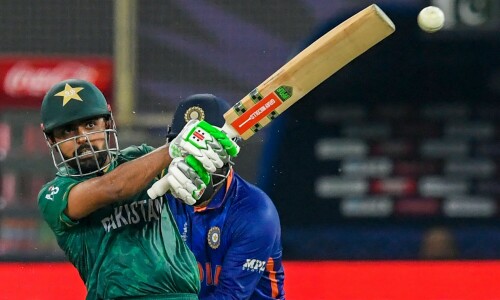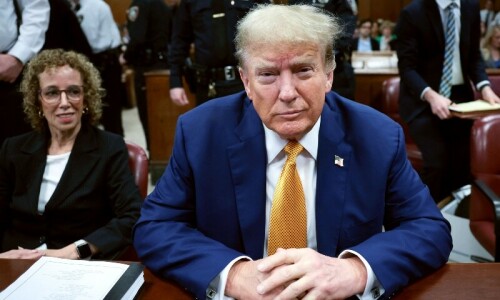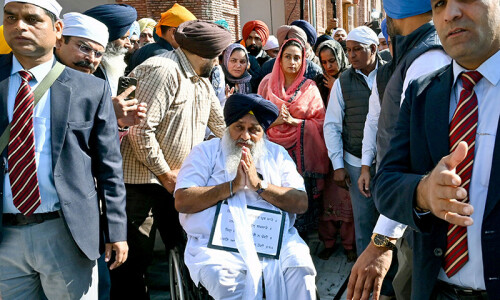GENEVA, Oct 15: Internationally-backed peace talks between Georgia and Russia broke down on the first day on Wednesday with the rivals, who fought a war in August, blaming each other for the failure to even enter the same room.
“There were two separate meetings, the Russians and the Abkhazians (in one) and the Georgians in another,” Sergei Shamba, foreign minister of the pro-Russian separatist region of Abkhazia, told journalists.
The talks would have been the first time representatives of the two sides have held direct negotiations since the five-day war after Russia thwarted a Georgian assault to retake its breakaway region of South Ossetia.
Russia has kept troops in South Ossetia and another rebel region, Abkhazia, and recognises both as independent states.
Pierre Morel, an official for the European Union, which organised the talks with the United Nations and Organisation for Security and Cooperation in Europe (OSCE), blamed “procedural difficulties” for the quick suspension of the negotiations.
Georgia said that Russia had refused to meet its delegation. “It’s regrettable that the Russian Federation has put the process from the very beginning under severe constraints,” Georgia’s head of delegation and deputy foreign minister Giga Bokeria told journalists.
Russia would not take part in any further talks with Georgia if representatives from South Ossetia and Abkhazia were not invited, Russia’s Deputy Foreign Minister Grigory Karasin said.
Even before the session, there was tension over the participation of the Abkhazians and the South Ossetians, with Russia insisting there could be no agreements without their presence.
The Georgians had argued that the official talks should only include representatives of Georgia, Russia, the United States, the European Union, the OSCE and the UN.
Russia has said it wants security guarantees and a ban on all weapons sales to Georgia, which in has demanded that all Russian troops leave Georgian territory, including South Ossetia and Abkhazia.
Russia called on the Georgians to sign “concrete and legally binding” security pacts with the two breakaway regions.
Georgia’s President Mikheil Saakashvili accused Moscow of adopting “Soviet” tactics during the talks.
“Despite the fact that Georgia had a very constructive approach and the rare opportunity for negotiations, Russia has left the negotiations. This is how the Soviet Union acted in the past,” Saakashvili said in comments broadcast on Georgian Public Television.
Russian troops and tanks rolled into Georgia on Aug 8 to push back a Georgian offensive to retake South Ossetia.
Russia has since withdrawn from most of Georgia in line with an EU-brokered ceasefire but Tbilisi is furious at the continued presence of 7,600 Russian troops in South Ossetia and Abkhazia.
Georgia says that Russia wants to annex the territories.
After the war Russia formally recognised both rebel Georgian provinces as independent countries, a move fiercely opposed by Georgia and its allies in the West and so far only followed by Nicaragua.
Russia has since set about establishing permanent military bases in the territories.
The Geneva talks were intended to provide a forum for the two sides to work out how to assist thousands of displaced people faced with a looming winter and begin the overall process of resolving the conflict.
Russian President Dmitry Medvedev has insisted that Moscow has fulfilled all its ceasefire obligations.
On Wednesday, however, Georgia accused Russian forces of firing grenades at a police post near Abkazia as well as entering Georgian airspace.
And the UN’s highest court ordered Russia and Georgia not to harm ethnic groups in South Ossetia and Abkhazia.
“Both parties shall refrain from any acts of racial discrimination against persons, groups of persons or institutions,” said presiding judge Rosalyn Higgins of the International Court of Justice.
Georgia had made an initial request for protection measures but the court extended it to make it an order against both countries.—AFP














































Dear visitor, the comments section is undergoing an overhaul and will return soon.